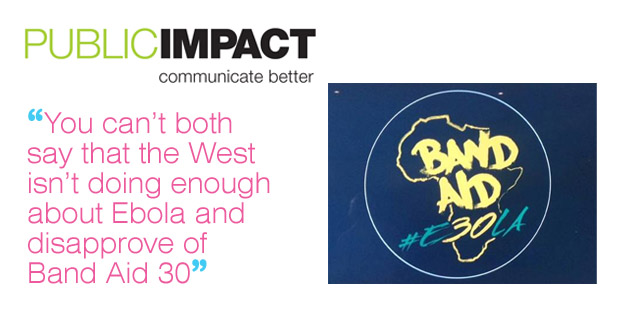I thought I would take a seasonal break from talking about how you can use inbound marketing to win supporters, members and donors or how to write better not-for-profit blogs and look an the old chestnut (bad Christmas pun quite intentional) that I thought I had head the last of long since.
I remember from my days at college the discussions about the merits of charitable giving. Actually they were not debates at all, more like a series of aggressive assertions designed to pillory those who disagreed with the anointed truth.
Charities, we were told, were unequivocally ‘bad things’, at best ‘counterproductive’, more likely ‘reactionary’ and to many ‘counter-revolutionary’. By giving or supporting charities one was propping up the iniquities of a rotten system where the ‘correct course’ was to bring about its downfall. To the barricades!
Well that was all in another time and it is fair to say that my University was a strange and wonderful place back then. The most significant barricades were those in the minds of ivory tower ideologues.
Band Aid changed how charity was viewed by a generation
It all changed with Band Aid. It was a pretty awful song with a lyric that was at best patronising and at worse plain stupid, but it raised money, created awareness and transformed the notion of what charitable giving was about. Those involved were making lots of money and perhaps gave up a Sunday afternoon that set them in a good light but so what? It was a good outcome. Organisations like Comic Relief followed on behind and the notion of giving to good causes found a new, younger, less cynical audience.
I found it pretty odd to be listening to a debate, similar if less aggressive to those at my college, on the appearance of this year’s Band Aid 30. While in 30 years much has changed in Africa and much has changed in development aid. We were told by some that the song and its somewhat adapted lyrics were patronising, gave a negative impression of Africa that took no account of the difference 30 years have made and that those involved were mainly concerned with self-promotion. The song was rubbish back then and it’s rubbish now but these voices were wrong back then and they are still wrong now. I was wrong to listen to them, even a bit.
Rubbish then rubbish now
Of course the Band Aid song is still musically dreadful, lyrically suspect and made by a relatively wealthy group of people. But again, so what? At least these days you don’t have to buy the record to give to the cause they promote – there is a website and everything! Also, and I really don’t care if people think I’m being simplistic, but whatever the changes in Africa (which include all manner of great things I didn’t think I would live to see) there is a real immediate crisis in West African states whose infrastructure has been denuded by war around a virus called Ebola. It is absurd in the extreme to claim on the one hand that ‘the West’ isn’t doing enough and to criticise the detail of how western charitable aid is raised.
An industry I’d like to see in recession
I hear something not dis-similar in the UK about giving to Food Banks. It is an obscenity that in this wealthy country people are forced to rely on food banks. While we talk of winning new donors with not-for-profit marketing donating food for the hungry still matters – a lot. The infographic below* is a fine piece of work representing the most depressing set of statistics I’ve seen in 2014.
Some argue that foodbanks are a deliberate act of policy – to transfer responsibility for social welfare in the UK from the State to the not-for-profit sector – and so by giving to food banks we are simply playing the game of the Government, effectively helping their project. That’s as maybe, but it is still the wrong conclusion. To leave it to others or to argue that those in need have to suffer to bring about change is not an argument that humanitarians, of faith or of no faith, can make in a country as well-off as the UK with any credibility. To find out more about the work of a foodbank local to us click here and watch the video.
Even though Foodbanks are an industry I would love to see go into prolonged recession, they will welcome donations this Christmas.

